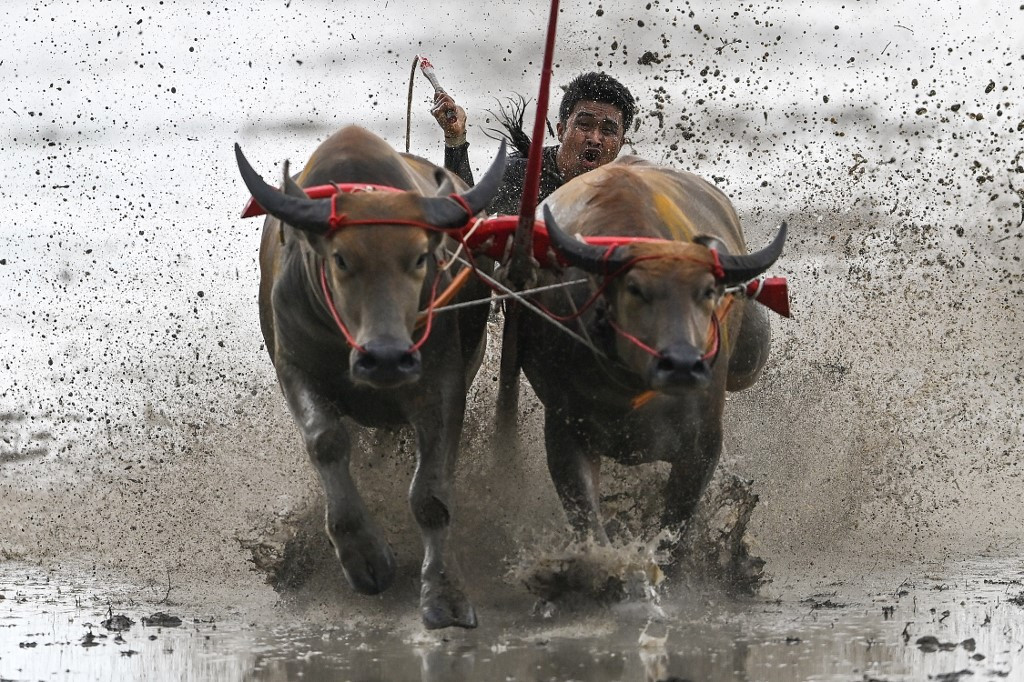Popular Reads
Top Results
Can't find what you're looking for?
View all search resultsPopular Reads
Top Results
Can't find what you're looking for?
View all search resultsMud, sweat and cheers: Traditional Thai water buffalo race enthralls crowds
Change text size
Gift Premium Articles
to Anyone
B
oys scurry, duck and weave through crowds sheltering from the suffocating heat on Sunday, before upending buckets of cooling water on beefy bovines waiting to compete at the annual traditional Thai buffalo races in Chonburi.
The riotously noisy, muddy and slightly chaotic annual tradition marks the beginning of the rice planting season, with the festival-like atmosphere in the eastern province taking place for the first time in two years.
The main event sees four pairs of harnessed buffaloes gallop across a decorated paddy field, with intrepid racers sprinting barefoot through the shallow muddy waters and attempting to both control their beasts and remain upright.
"Before the race starts, we are a little excited and nervous," said Sompong Ratanasatien, 33, drenched and breathing heavily after his latest bout.
The trickiest point was the starting line, he said, where racers must wait for the official start whistle as they attempted to maneuver the heavy beasts into position and keep them calm.
"After that, it depends on our buffalo and how he matches with my skills," said Ratanasatien, who was enjoying a winning streak with his 2-year-old bovine Kao.
Urged on with a small metal-tipped bamboo whip, the usually placid animals are unrecognizable as they rampage down the watery field. Bouts are divided according to weight and size, with the heaviest creatures slightly slower to a practiced eye, but requiring significantly more skill to control.
And the racers, who work and train with the buffalos for weeks in preparation, don't always have the upper hand.
Numerous races got off to false starts as the hapless human racers were, literally, dragged through the mud.
"I think normal people cannot do [this]," said Within Lueanguksorn, 38, who had traveled from Bangkok to watch the races. "There is a relation between the people and them [buffalos].”
The animals often looked close to careening out of control as they thundered across the finish line, scattering any spectators foolish enough to stand nearby.
Racer Noppadon Yindeesuk, 45, admitted the tradition could be hazardous.
"It could be a bit dangerous if the buffalos are running too close to each other because it could cause an accident, so the riders must be careful," he explained.
Still, he said he would be racing two of his buffaloes, Parewa and Pete, worth around 150,000 baht (US$4,200) each.
"They are over two years old, and they won the race last year," he said, grinning ear to ear, adding that he trained with them every three or four days.
But there was an important point to Sunday's spectacle, Yindeesuk said. "I compete in buffalo racing because I am trying to preserve our Chonburi traditions about good rice, good buffalo."











